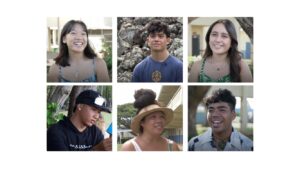“Your present circumstances don’t determine where you go; they merely determine where you start.”
— Nido Qubein
“Be dedicated to change the way in which people see mental illness at all levels of society.
If not for yourself, advocate for those who are struggling in silence.”
— Germany Kent
This Buzz brings you resources focused on mental health amid the many diverse populations that Parent Centers serve. Culture and identity can play a profound role in shaping a person’s or community’s mental health challenges, strengths, and resiliency. To that end, we hope you find the resources in this Buzz illuminating, useful to you as Parent Center staff, and pertinent to the families with whom you connect.
Here’s to the terrific work you do!
The CPIR Team
_______________________
Heritage Month of Asian Americans and Pacific Islanders
Asian American and Pacific Islander (AAPI) Heritage Month
May is Asian/Pacific American Heritage Month. Check out the events, collections, exhibits, and collections available throughout the month from U.S. government agencies such as the Library of Congress and the Smithsonian to celebrate the influence, contributions, and achievements of AAPI communities in the United States.
May is also Mental Health Awareness month. With respect to Asian Americans and Pacific Islanders, these resources might also be of interest to you:
Read about the multitude of barriers that AAPI populations may encounter when seeking culturally competent mental health services.
Read CPIR’s brief called Historical Trauma of Native Hawaiians, part of our Native American Resource Collection.
Find an Asian therapist near you, at the Asian Mental Health Collective.
_______________________
May is Mental Health Awareness Month
Identity and Cultural Dimensions
NAMI is an excellent go-to source of info and guidance on mental health issues of all kinds. In this section of NAMI’s website, you’ll find individual pages examining the mental health realities of diverse communities such as Asian American and Pacific Islander; Black/African American; Hispanic; Indigenous; LGBTQI; and People with Disabilities.
Reinforcing the Resilience of Native American Parents and Youth
As part of supporting Native families, reminding Native families and youth of their innate resilience is extremely important. CPIR offers two resources on resilience to help Parent Centers and the Native families with whom they work: (1) How Parent Centers Can Support American Indian and Alaska Native Parents (linked above); and (2) Bouncing Back from Setbacks: A Message for American Indian and Alaska Native Youth.
 The 7 Most Important De-escalation Strategies for Challenging Behaviors
The 7 Most Important De-escalation Strategies for Challenging Behaviors
De-escalation is the process of calming down a situation before it escalates further. Learning to de-escalate situations is not always easy. It requires practice and a toolbox of techniques. What de-escalation strategies can educators and parents use when kids and teens are overwhelmed, upset, or engaging in challenging behaviors? This article describes the 7 more important.
Tailored Youth Suicide Prevention Efforts
Research shows that youth of color and LGBTQ+ youth are at higher risk of suicide than White and heterosexual youth, which suggests the importance of tailoring prevention approaches to the populations most in need of support. This Child Trends’ new brief offers three powerful recommendations to help community-based organizations tailor their youth suicide prevention efforts to the unique needs and strengths of Asian, Black, Indigenous, Hispanic, and LGBTQ+ youth.
_______________________
Cultural and Linguistic Competency in Dispute Resolution
Self-Assessment of Cultural and Linguistic Competency
Dispute resolution systems must be culturally and linguistically competent to meet the interests and needs of diverse populations residing in the United States, territories, and tribal nations. CADRE offers this self-assessment tool, which can be useful in determining the level of cultural and linguistic competence in a dispute resolution system. It’s part of a much larger package on the subject, including a User’s Guide, a webinar, and recommended supplemental resources (e.g., A Guide to Engaging Underserved Families in the CLC Assessment Process).
_______________________
 This eNewsletter from the CPIR is copyright-free.
This eNewsletter from the CPIR is copyright-free.
We encourage you to share it with others.
Center for Parent Information and Resources
c/o SPAN, Inc.
35 Halsey St., Fourth Floor
Newark, NJ 07102
https://www.parentcenterhub.org
Subscribe to the Buzz from the Hub.
See past issues of the Buzz.
____________________________________________________________
Publication of this eNewsletter is made possible through Cooperative Agreement H328R180005 between OSEP and the Statewide Parent Advocacy Network (SPAN). The contents do not necessarily reflect the views or policies of the Department of Education, nor does mention of trade names, commercial products, or organizations imply endorsement by the U.S. Government or by the Center for Parent Information and Resources.


